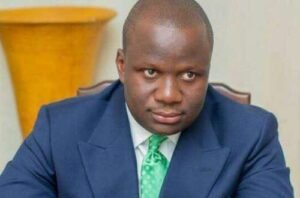
In a move aimed at enhancing the operational framework of the Ghanaian Parliament, the Eighth Parliament of the Republic of Ghana has introduced a new committee known as the ‘Ways and Means Committee’ (unconventional means) under order 232. This committee has been tasked with addressing issues directly affecting the welfare and functionality of Members of Parliament.
Comprising the Deputy Majority Leader as Chairperson, deputized by their counterpart from the minority party, along with representation from Chief Whips and a maximum of nine additional Members, the newly established Ways and Means Committee is set to play a pivotal role in parliamentary affairs.
The mandate of the Ways and Means Committee is multifaceted, encompassing several key responsibilities:
a) Monitoring and Coordination:The committee will oversee and coordinate the activities of all Parliamentary Committees to ensure the proper execution of their mandates.
b) Ad Hoc Committees: It will consider requests for the establishment of ad hoc Committees and present reports to the House with recommendations.
c) Programme Evaluation: The committee will assess the programs of every committee, including their travel requirements for meetings outside the precincts of Parliament.
d) Budget Oversight: It will receive and review the annual work plans containing the program of activities and budget of each Committee for inclusion in the annual budget estimates of Parliament.
e) Resource Allocation: The committee will determine the resource requirements and allocation of funds to Committees, ensuring equitable distribution.
f) Fund Allocation: It will be responsible for the quarterly allocation of funds to Committees from the budget of Parliament, while also periodically reviewing Committee performance.
g) Ensuring Compliance: The committee will ensure that Committees submit reports as required by law, maintaining transparency and accountability within Parliament.
The creation of the Ways and Means Committee by the Eight Parliament of the Republic of Ghana addresses longstanding challenges within the legislative body, notably disputes over parliamentary rules and procedures. Deputy Speaker Joseph Osei Owusu’s involvement in contentious rulings, such as overturning decisions by Speaker Alban Sumana Kingsford Bagbin and voting while presiding, has sparked debate on adherence to standing orders.
In a landmark decision, the Kwesi Anim-Yeboah-led bench upheld Attorney General Godfred Yeboah Dame’s argument that a person acting as Speaker is not prohibited from forming a quorum or voting. The Supreme Court’s 2022 ruling affirmed that a Deputy Speaker of Parliament can contribute to the formation of a quorum for decision-making and participate in voting while presiding.
Moreover, the court struck down sections of the standing orders of parliament that previously barred a Deputy Speaker or any other member presiding from retaining their original vote while presiding over parliamentary proceedings. This ruling signifies a significant shift in parliamentary protocol, reinforcing the authority and role of Deputy Speakers in legislative decision-making processes.
The previous standing orders, operational for the past 24 years since its revision in November 2000, featured only nineteen committees. However, the new structure boasts an expanded framework of approximately 51 committees, signifying a comprehensive approach to legislative oversight and governance.






